Home

Unlock Your Credit Potential




The Ultimate Guide to Building and Maintaining Excellent Credit
Introduction
Having strong credit is essential for financial success. It affects your ability to get approved for loans, rent an apartment, secure a mortgage, and even land a job. This guide will walk you through the steps to build, improve, and maintain excellent credit in a simple, actionable way.
1: Understanding Credit
What is Credit?
Credit is the ability to borrow money or access goods and services with the agreement to pay later. Lenders assess your creditworthiness before extending credit.
The Importance of Credit Scores
Your credit score is a numerical representation of your creditworthiness. The most common scoring model is the FICO Score, which ranges from 300 to 850:
-
300-579: Poor
-
580-669: Fair
-
670-739: Good
-
740-799: Very Good
-
800-850: Excellent
How Credit Scores Are Calculated
Credit scores are determined by several factors:
-
Payment History (35%) – Paying bills on time is crucial.
-
Credit Utilization (30%) – Keep balances low (below 30% of your limit).
-
Length of Credit History (15%) – Older accounts help boost scores.
-
New Credit Inquiries (10%) – Too many hard inquiries can hurt your score.
-
Credit Mix (10%) – A mix of credit types (credit cards, loans, etc.) is beneficial.
2: Building Credit from Scratch
Steps to Establish Credit
-
Get a Secured Credit Card – Deposit-backed credit cards help build history.
-
Take Out a Credit-Builder Loan – Designed for people with no credit.
-
Use a Rent Reporting Service – Some services report rent payments to credit bureaus.
-
Open a Store Credit Card – Easier to qualify for and helps establish credit.
3: Improving a Low Credit Score
Key Strategies to Boost Your Score
-
Make On-Time Payments – Set up autopay to avoid missed payments.
-
Lower Your Credit Utilization – Paying down balances lowers your utilization percentage and when credit limits are increased, your utilization percentage goes down. Your credit cannot be pulled without your consent. So, whenever you have your credit pulled, you want to make sure your utilization percentage is low. Paying down a high balance will add points to you credit score. The number of points will depend on your credit file. You’ll never earn as many points for a positive event in comparison to the number you’ll lose for a negative event. It takes time build a credit file, and it takes no time to destroy a credit file.
-
Dispute Errors on Your Credit Report – Check your credit reports from AnnualCreditReport.com and dispute inaccuracies.
-
Negotiate Debt Settlements – Contact creditors to arrange payments or request goodwill adjustments. Creditors want their money back, you would be surprised how many lenders and creditors will work with you if you have a good credit history. However, if you have a bad credit history, don’t count on getting any slack from them.
-
Avoid Opening Too Many New Accounts – Each new credit application results in a hard inquiry.
4: Managing Credit Wisely
Best Practices for Long-Term Credit Health
-
Monitor Your Credit – Utilize the free credit report from each credit bureau you can receive every year. If the credit bureaus give reports with errors, the last thing you want is a credit report from a third-party website that provide free credit scores. You want to get your information straight from the source.
-
Maintain Old Accounts – Even if you don’t use them often, keeping them open helps credit history. Although, if an account has no activity on it, the account can be closed for inactivity. That looks very bad to lenders.
-
Use Credit Responsibly – Never charge more than you can pay off in full each month. Paying less than the balance will dock points from your credit score.
-
Diversify Your Credit – Having a mix of installment loans and revolving credit is beneficial. The perfect mix is 2 major credit cards, gas or store card, installment loan, and a mortgage earns the most points. Having 4 different credit cards will dock points from your score. Three credit cards will earn the most points. But you still need an installment loan to earn more points. There’s a fine line for having too much credit, and your risk factor goes up.
5: Dealing with Credit Challenges
Handling Late Payments
-
Pay immediately to minimize damage.
-
Contact creditors to remove late fees or negotiate goodwill adjustments.
Managing High Debt
-
Use the Debt Snowball Method (pay off smallest debts first for quick wins).
-
Use the Debt Avalanche Method (pay off high-interest debts first to save money).
Rebuilding After Bankruptcy
-
Start with a secured credit card.
-
Keep a strict budget and avoid unnecessary debt.
-
Make consistent on-time payments to regain credibility.
6: Advanced Credit Strategies
Leveraging Credit for Financial Growth
-
Credit Card Rewards & Travel Hacking – Use cards with cashback and travel perks.
-
Balance Transfers – Transfer high-interest debt to a 0% APR credit card. You need to be careful with 0% APR because, 0% doesn’t last forever, how long before interest kicks in? And what’s the percentage? The lender needs to compensate for length of time that no interest was being applied.
-
Business Credit – Separate personal and business finances to build business credit.
Protecting Your Credit
-
Freeze Your Credit – Prevent fraud by locking your credit file when not applying for new credit.
-
Identity Theft Protection – Use services that monitor and alert you about suspicious activity.
Conclusion
A strong credit profile opens doors to better financial opportunities. By following these steps, monitoring your credit, and making responsible financial decisions, you can build and maintain excellent credit for life. Implement these strategies today and take control of your financial future!
Now create me an article about better credit. Make it readable, interesting, accurate, with a little sarcastic humor about the credit industry. Make it spectacular.
Unlock Your Credit Potential
Discover essential resources and tips to enhance your credit score, manage debt effectively, and navigate the complexities of credit reports for a brighter financial future.


Transform Your Credit Today for a Brighter Financial Future
Unlock the secrets to improving your credit score and managing debt effectively. Our resources are designed to empower you on your financial journey.
What are the best ways to improve my credit score?
Improving your credit score involves several strategies, such as paying bills on time, reducing credit card balances, and avoiding new hard inquiries. Regularly checking your credit report for errors and disputing inaccuracies can also help. Additionally, maintaining a good mix of credit types and keeping old accounts open can positively impact your score.
How can I manage my debt effectively?
Managing debt effectively requires a combination of planning, discipline, and smart financial strategies. Creating a budget and prioritizing high-interest debts is a place to start. It’s essential to communicate with creditors and explore repayment plans. Utilizing tools like debt calculators can help you understand your repayment options
What should I know about credit reports?
Credit reports provide a detailed history of your credit activity, including payment history, credit utilization, and inquiries. Understanding your credit report is crucial for identifying areas for improvement. Regularly reviewing your report can help you spot errors and understand how your financial behavior affects your credit score, enabling better financial decisions.
How do credit tools assist consumers?
Credit tools, such as calculators and simulators, help consumers estimate their credit scores and understand the impact of various financial decisions. These tools can guide users in managing their credit effectively, allowing them to make informed choices about loans, credit cards, and debt repayment strategies, ultimately leading to better financial health.
What are the benefits of financial education?
Financial education empowers individuals to make informed decisions about their money, leading to improved credit management and debt reduction. It provides knowledge on budgeting, saving, and investing, which are essential for achieving financial stability. By understanding financial concepts, consumers can navigate credit products and services more effectively, enhancing their overall financial literacy.
How can I dispute an error on my credit report?
In theory, to dispute an error on your credit report, gather supporting documentation and contact the credit bureau directly. Provide a clear explanation of the error and request a correction. The bureau will investigate your claim, typically within 30 days, and inform you of the outcome. Keeping records of your communications is essential for tracking the dispute process. The dispute process is complicated and misleading and is not what the average consumers believes. Here is a report from the National Consumer Law Center, written by Chi Chi Wu. The title of the report is AUTOMATED INJUSTICE:
HOW A MECHANIZED DISPUTE
SYSTEM FRUSTRATES
CONSUMERS SEEKING TO FIX
ERRORS IN THEIR CREDIT
REPORTS.
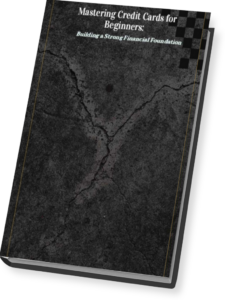 Credit cards can be powerful financial tools—but only when used wisely. Mastering Credit Cards for Beginners is the ultimate guide to understanding how credit cards work.
Credit cards can be powerful financial tools—but only when used wisely. Mastering Credit Cards for Beginners is the ultimate guide to understanding how credit cards work.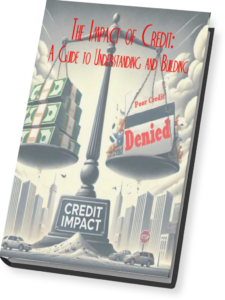
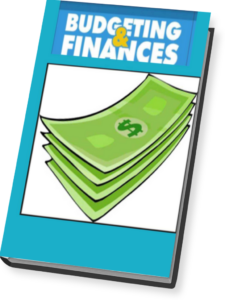 Mastering your finances starts with a solid budget—but where do you begin? Budgeting Finances is your complete guide to taking control of your money.
Mastering your finances starts with a solid budget—but where do you begin? Budgeting Finances is your complete guide to taking control of your money.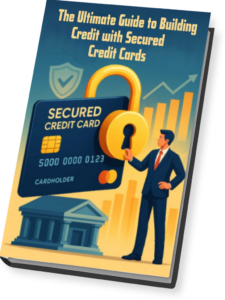
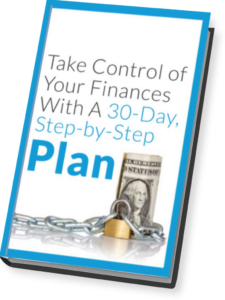
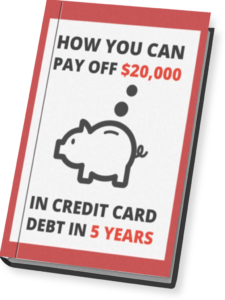
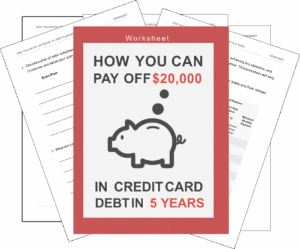 guide to eliminating credit card debt and unlocking financial freedom. Download the worksheet to go with the ebook.
guide to eliminating credit card debt and unlocking financial freedom. Download the worksheet to go with the ebook. Debt can feel overwhelming, but financial freedom is within reach. Getting Out of Debt offers practical, step-by-step strategies to help you regain control over your finances and eliminate debt for good.
Debt can feel overwhelming, but financial freedom is within reach. Getting Out of Debt offers practical, step-by-step strategies to help you regain control over your finances and eliminate debt for good. Designed as a companion to the Getting Out of Debt guide, it helps you apply key strategies—from budgeting smarter to cutting expenses and maximizing income.
Designed as a companion to the Getting Out of Debt guide, it helps you apply key strategies—from budgeting smarter to cutting expenses and maximizing income.